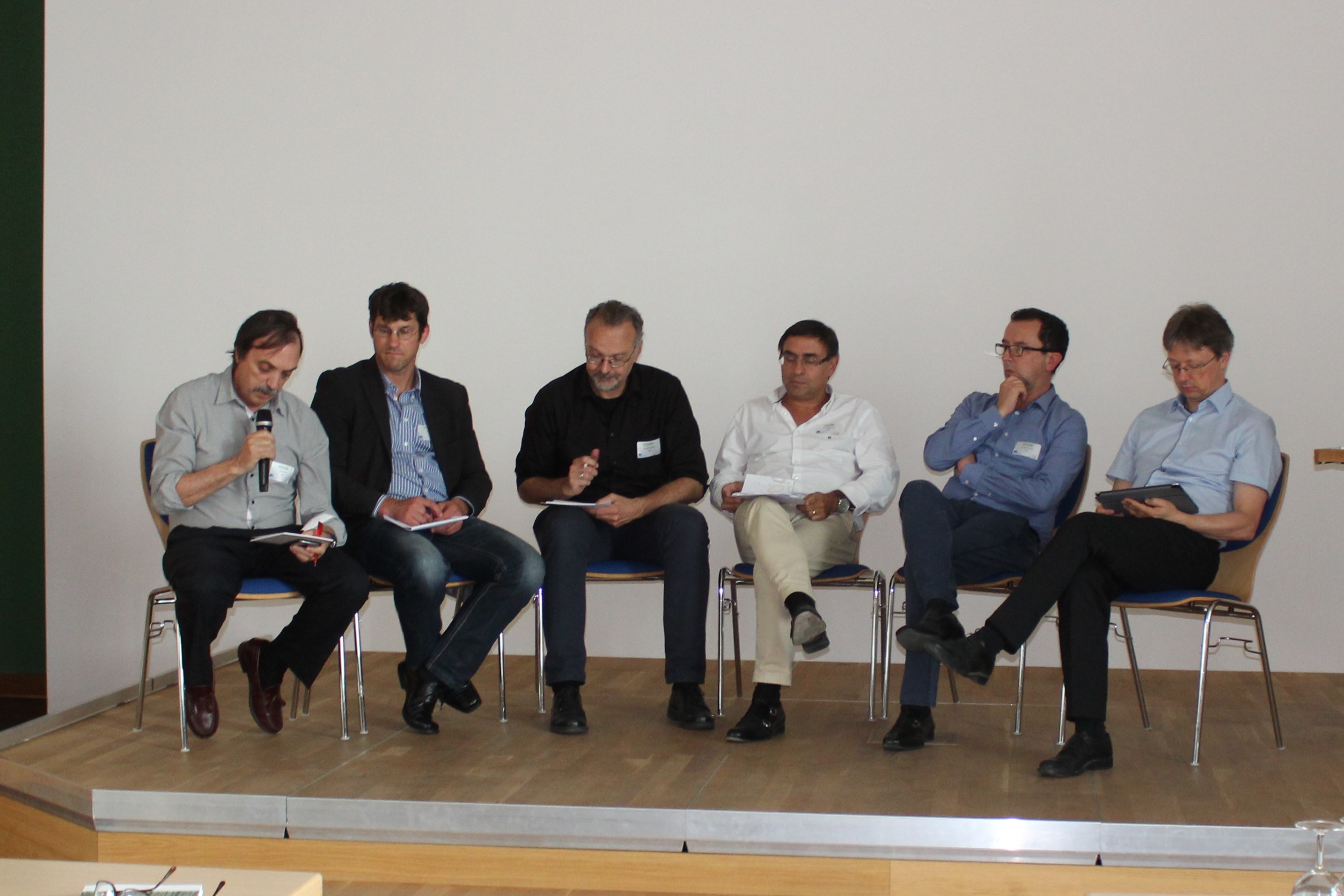Summary of panel 1:

First panel discussion on opportunities and challenges for Small-scale Biorefineries in Latin America and Europe (from left: J. Hilbert, D. Rutz. R. Janssen, F. Gírio, C. Cardona, and V. Sieber)
Volker Sieber commented on the challenges in research & innovation, that because of the heterogeneity of the substrates, the processes of future biorefineries need to be robust and tolerant. Regarding the timeline until the farmstead biorefinery can be realized, Volker Sieber revealed that he expects this to happen within ten years. Carlos Cardona identified the logistical challenge in Latin American countries like Colombia as the biggest obstacle. Many promising locations are far from a well-functioning infrastructure, and many promising feedstock resources (high total numbers) are distributed in thousands of different owners (e.g., coffee plantation residues). Mr. Cardona expects that in ten years, in Colombia there will be enough knowledge to begin with the production of fiber products. Dominik Rutz commented that the logistics issue in Latin America, that is decisive for the plant scale decision depends on the concentration of biomass nearby. He mentioned also the obstacle of non-existent knowledge about biorefineries in the broad public which hinders a fast market development. Also, the biorefinery concepts need to be tailor-made and fit in the industrial framework. Jorge Hilbert insisted then that biomass production is local and therefore local solutions need to be found. He stated a lack of information in general and only little knowledge about new markets. He also sees the available technology far from optimum. Regarding the timeframe for new biorefineries, Mr. Hilbert stated that this was hard to predict. Francisco Gírio identified as main barrier the current energy restrictions that minimize the feedstock portfolio because of sustainability criteria. He believes that the public perception towards biorefineries can be overcome if small-scale solutions show their viability. Carlos Cardona stated then that small-scale solutions are sometimes the only solution in isolated areas although they might not be completely sustainable. In Colombia, generally biomass is perceived as food. Volker Sieber replied thereto that one needs to distinguish between the situation of much land & few people versus few land & many people when thinking about bioenergy solutions. He emphasized that bioenergy can only be a part of the system and never the single solution. Small-scale solutions might increase the image of the sector thus create a better public perception.
Moderator Rainer Janssen reminded the panelists of the Biodiesel story in Bavaria that led to heavy problems for the market. Dominik Rutz replied that despite bad examples, the sustainability discussion missed the good examples. Biodiesel and rapeseed oil production are local solutions and deserve more support. Jorge Hilbert complained the way how public perception is generated. Politicians often receive biased information by lobbyists meanwhile researchers who could prove these information wrong are often overheard.



